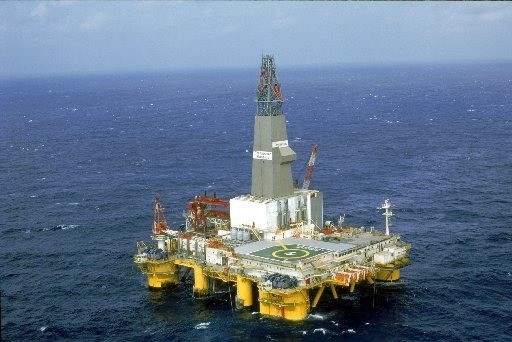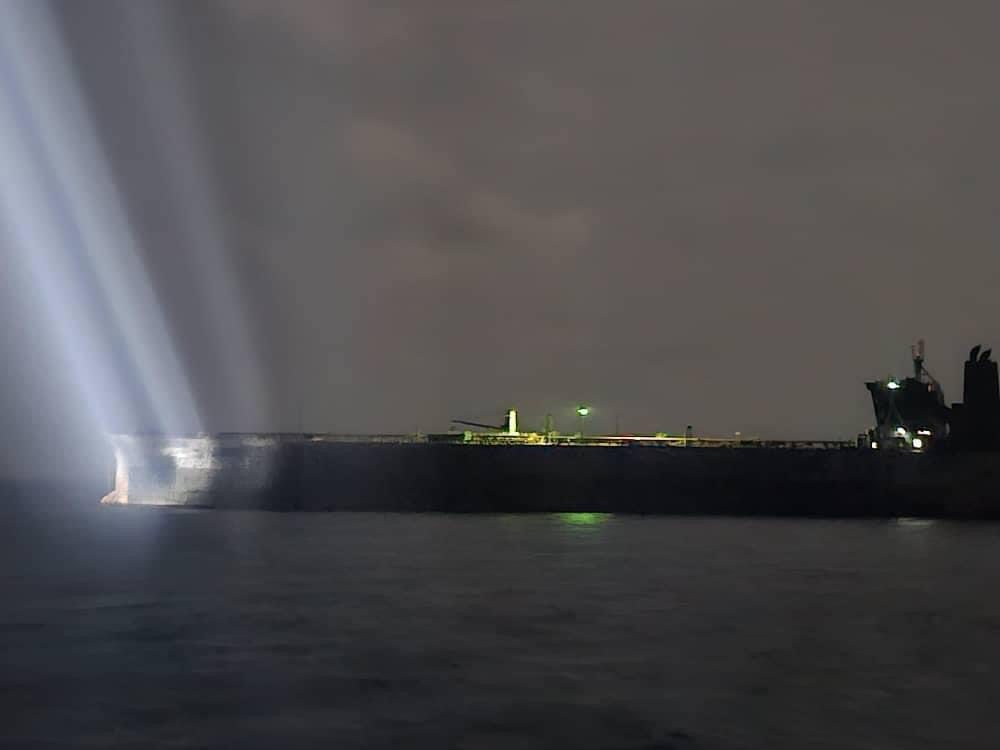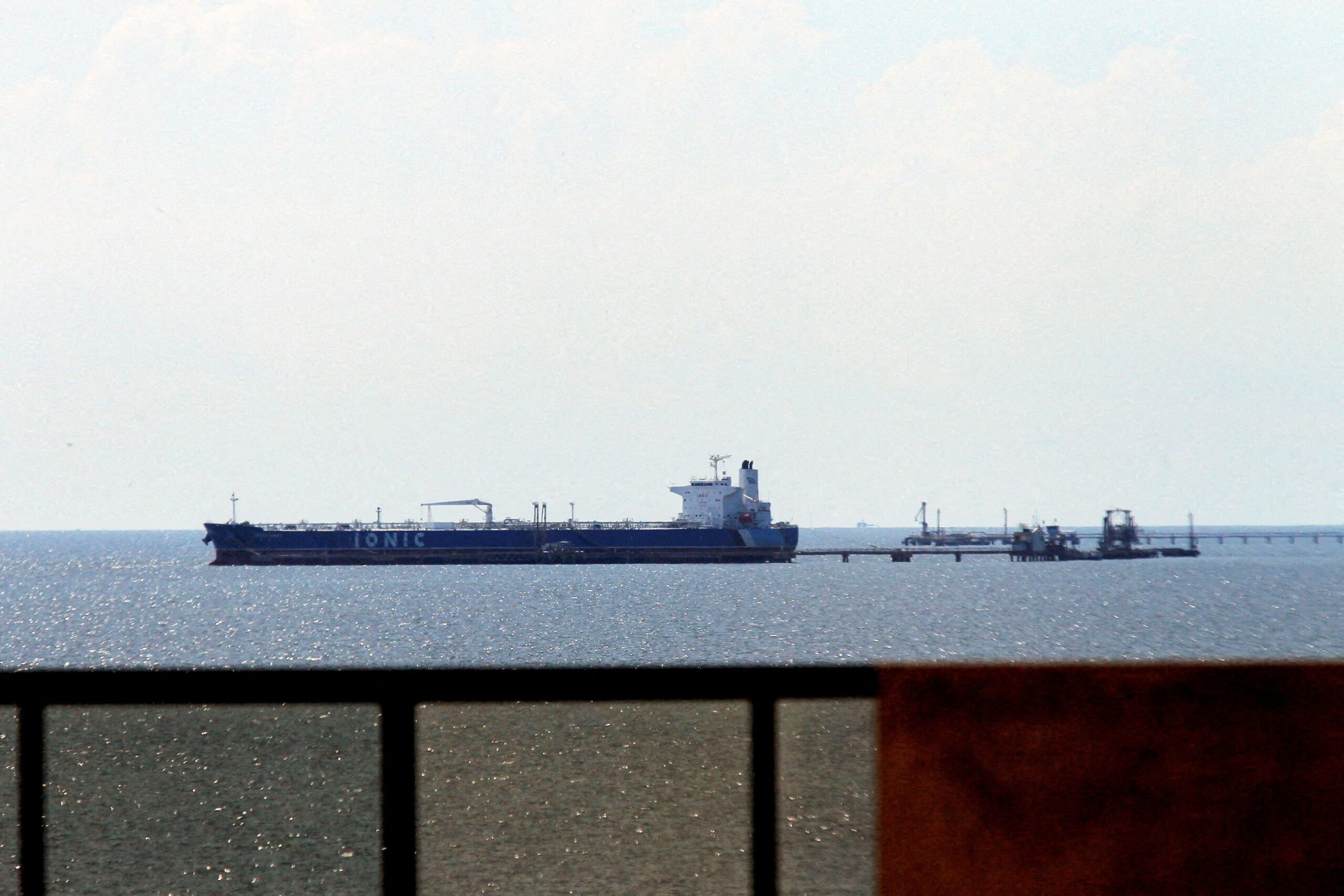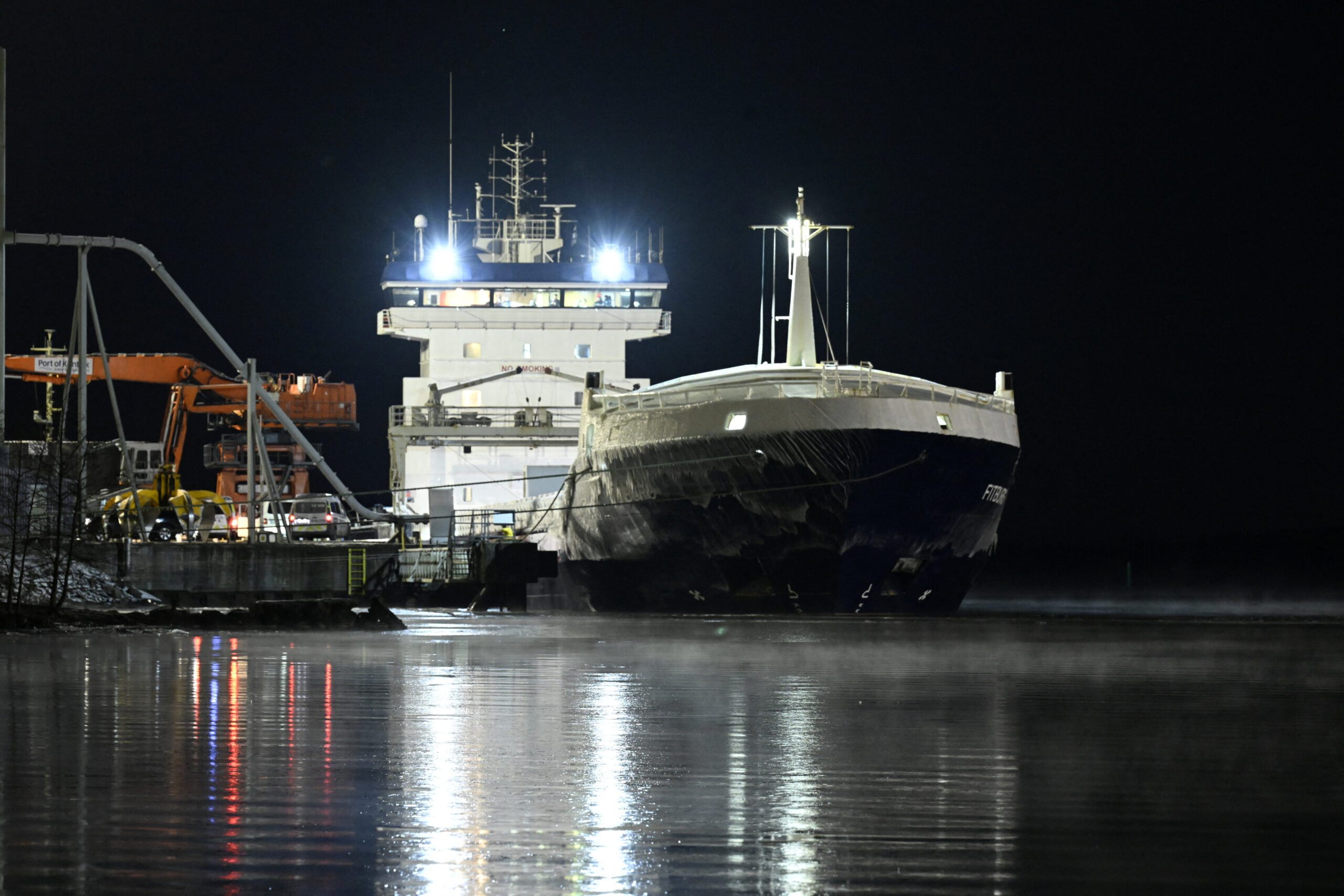
The world’s most storied deepwater oil rig, the Transocean Marianas, has developed a critical list after an anchor punctured her poontoon and is in risk of sinking on location (UPDATE: She is now stable but risk of sinking remains). 108 people have been evacuated from the rig and 13 remain aboard to perform damage control duties. The Marianas, a Transocean-owned semi-submersible drilling rig is on contract with ENI S.p.A in Ghana, West Africa.
The rig began to take on water and list during anchor recovery operations and it’s believed there is damage to the rig’s #5/#6 anchor chain lockers, however the rig’s crew has since been able to stabilize the situation and a Transocean employee has approximated the list to be less than one degree – a fact that suggests she is stable and no water has entered the column closest to the damage. The rig’s ballast pumps are keeping up with the inflow of water and there was no report of any environmental impact.
But despite being stable, the rig is not yet in the clear. Due to the increase in water pressure at depth, punctures in the pontoons of semi-submersible oil rigs, like the Marianas, are always considered critical. The increased pressure at depth translates to a higher rate of water ingress than would be measured on a traditional ship with equivalent damage. The higher pressure at depth also means increased pressure at the point of damage thus increasing the likelihood of the damage spreading into adjacent compartments. It has not reported if it was at the rig’s higher transit draft in preparation for move – the ususal next step after anchor recovery – which would help minimize the pressure exerted on the damaged pontoon.
Transocean spokesman Guy Cantwell told Reuters “The rig is stable at this time. There are no injuries,” and has officially downplayed the risk of sinking but sources closer to the damage tell us the company has placed top priority on the incident and has not ruled out sinking as a possibility if weather deteriorates, the damage spreads or a mechanical failure is experienced.
gCaptain has also received word that Transocean has made the proper notifications with regulatory authorities, investors and the media. In addition gCaptain has been told the company has placed stationed tugs in the area, has developed a plan to evacuate the 13 remaining personnel if damage worsens and a team of divers from a nearby rig is en-route to assess the damage.
gCaptain contributer and weather expert Fred Pickhardt of Ocean Weather Services, reports with the following forecast for the region:
Currently satellite images show widespread tropical shower activity across West Africa but mostly concentrated overland, however, some shower activity extends southward over the coastal waters. Surface winds over the area are southerly to southwesterly mostly forces 2-4 with a mostly southerly swell of 5-7 ft at 8-10 seconds.
Oddly enough, the Marianas was the same rig that initially “spudded” the ill-fated Macondo well that led to last year’s tragedy in the Gulf of Mexico. This rig was initially named “Tharos” and designed as a floating “fire truck” of sorts for the North Sea, however it was later converted to a drilling rig and renamed after it’s design proved highly ineffective during the Piper Alpha disaster that occurred 23 years ago on this date.

 Join The Club
Join The Club











